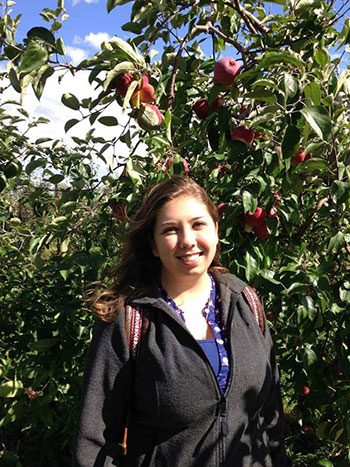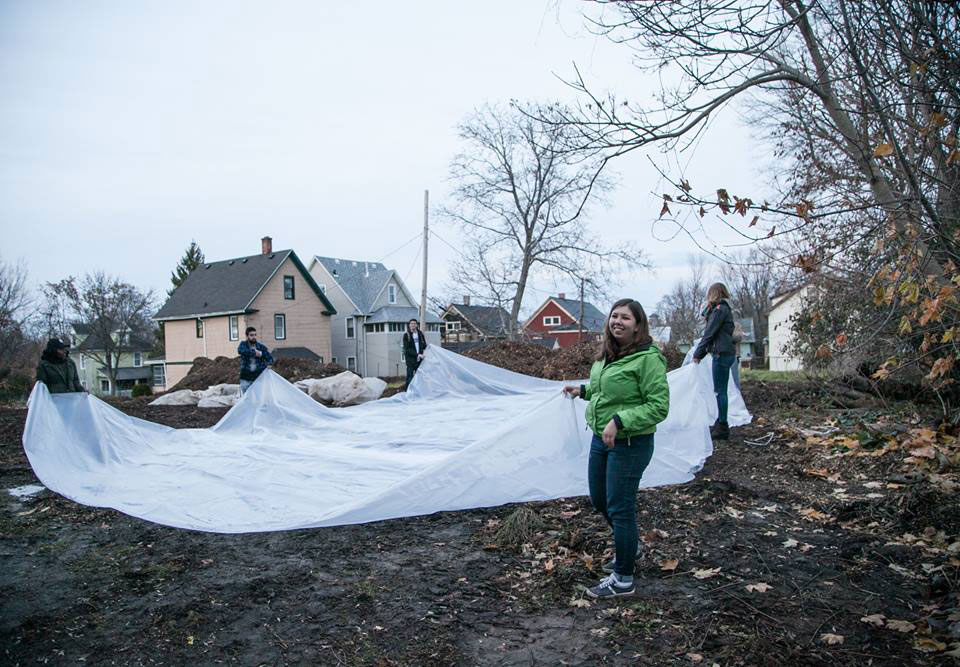Alumni Profiles

Jamie Rudd
Class of 2017
Despite being the descendent of a long line of farmers and spending my childhood surrounded by crop dusters and massive irrigation systems, it wasn’t until my junior year of college that I started thinking critically about agriculture and my relationship to it. It happened, oddly enough, during my semester abroad in northeast Thailand where I took a course called The Human Perspective on Development and the Environment. It was during this course, which explored food systems in both Thailand and the US, that I first began to see the many ways food production is linked to environmental and human rights issues, as well as culture, concepts of modernity, and socioeconomic inequity. Almost immediately, I knew I was discovering something big—issues so important that I needed to make them a focal point of my education going forward.
So when I returned to the University of Rochester the following spring, I did just that. In my remaining semesters of college, I was able to take three environmental humanities courses: Food, Media, and Literature; Food Justice, Urban Farming, and Social Practice; and Politics of Nature. All three were highly interactive, involving a range of field trips, hands-on projects, self reflection, and personal growth. Environmental humanities deepened my understanding of food and the environment from a social perspective, sparked my passion for urban agriculture, and ended up making an enduring impact on my life.
After graduating, I joined AmeriCorps and was placed at the MK Gandhi Institute for Nonviolence, a local Rochester nonprofit that just so happened to be where the urban farming component of my food justice course took place. My arrival coincided with a shift in management of the Institute’s urban ag activities, and I quickly volunteered to be the new co-manager of the garden (which includes over 20 beds, a fruit orchard, and a greenhouse).
Our garden is situated in the Plymouth-Exchange neighborhood, one of Rochester’s many food deserts, where some of the harshest consequences of our nation’s food system are apparent. Not only are our neighbors disconnected from the food production process in the way most Americans are, but they also lack access to fresh, affordable, culturally-viable produce in a way that wealthier, whiter communities in Rochester do not. At the Gandhi Institute, it’s our goal to do what we can to correct both of these system failings.
Environmental humanities taught me that our current food system is environmentally destructive, inefficient, and robs many of us of the agency to determine how we fuel our bodies. Today, I’m lucky enough to have a job where I get to draw from my environmental humanities education on a regular basis and help others connect to food, reflect on their relationship to the food system, and hopefully take those first important steps in challenging it.

